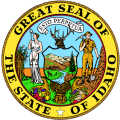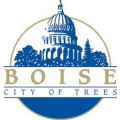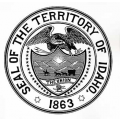The nursing profession offers a variety of opportunities, ranging from nursing assistants to advanced practice registered nurses. In Idaho, all levels of the nursing profession are currently experiencing robust growth. The United States Department of Health and Human Services projects a 30% deficit in the number of nurses needed in the state by 2020.
Nursing assistant and licensed practical nurse
Idaho
We've organized a comprehensive list of Idaho nursing schools. Below you'll find information on specific nursing programs such as LPN certificates and ADN, BSN, and MSN degrees. You'll also find a profile of nursing education and careers in each major Idaho city.
City-specific information
Nurses are essential to the healthcare system all across the state of Idaho, taking on many of the responsibilities traditionally entrusted to doctors. With the challenges presented by an aging population, growing numbers of lifestyle diseases, and a steadily expanding healthcare system, the medical community is relying more and more on nurses, making nursing a profession in high demand. In Boise, there are plenty of job opportunities for nurses at all levels. Given the increasing responsibility in the field, it is crucial that aspiring nurses have the best training available.
One of the best ways to advance your career as a registered nurse (RN) is to pursue a master of science in nursing (MSN) degree. The MSN is a postgraduate degree, which enables nurses to gain expertise and specialize in new careers as educators, healthcare administrators, nurse practitioners, nurse midwives, nurse anesthetists, and other roles in a number of specialties. With the competitive nature of the job market, earning an MSN will give you the chance to set yourself apart in the nursing field and gain opportunities for advancement.
Registered nurses (RNs) play an essential role in the healthcare community, taking on many of the responsibilities that have been traditionally ascribed to physicians. RNs plan, implement, and assess a high level of patient care, and manage a team of other nurses and medical support staff. Because registered nurses have become so instrumental to providing care, the need for qualified candidates continues to grow.
Idaho has a steadily growing population and an expanding healthcare system, meaning that registered nurses (RNs) will be in high demand in the years to come. If you aspire to become a registered nurse, it could be worthwhile to consider pursuing an associate’s degree in nursing (ADN). Associate’s degrees in nursing only take two years to complete, and programs are offered at most community colleges. This makes the ADN the quickest and most affordable way to launch your career as an RN.
Licensed practical nurses (LPNs) are absolutely vital to our modern healthcare system. They assist physicians and registered nurses (RNs) with everything from records keeping and office organization to providing for patient care and comfort. LPNs monitor patients’ symptoms, change bandages, administer medications, and keep doctors informed about any changes in a patient’s condition. LPNs also help to supervise a team of nursing assistants and other support staff.
The cost of pursuing a nursing education in Idaho depends on several factors, foremost of which are the length of the program and the type of nursing college (private or public). One example of a more expensive program is Brigham Young University (BYU). In 2013-14, the total estimated cost for BYU was $8,668, including tuition, room and board, books, and miscellaneous costs. For those who can afford it, BYU should be a top consideration; as the largest private nursing school in Idaho, it contributed roughly 28% of nurses to the state in 2009.
Public and private universities are distinguished by the ways they are funded. Public colleges are typically financed by state governments, while private universities are funded mainly by private investments and donations. For this reason, the cost of education in private colleges and universities is relatively higher than their state-run counterparts. Private institutions must cover expenses by charging higher tuition rates and other academic fees, while governments partially subsidize public school operating costs like faculty salaries and research facilities.
Idaho’s educational system is supported by strong public colleges and universities that continually supply the workforce with highly prepared workers. These graduates include nurses who serve the health needs of a large and growing population. Idaho’s government provides funding and support for many public colleges and universities across the state, including community colleges, as part of its social investment.
The nursing profession offers a variety of opportunities, ranging from nursing assistants to advanced practice registered nurses. In Idaho, all levels of the nursing profession are currently experiencing robust growth. The United States Department of Health and Human Services projects a 30% deficit in the number of nurses needed in the state by 2020.
Nursing assistant and licensed practical nurse









